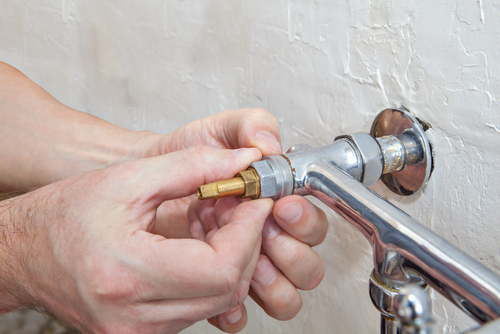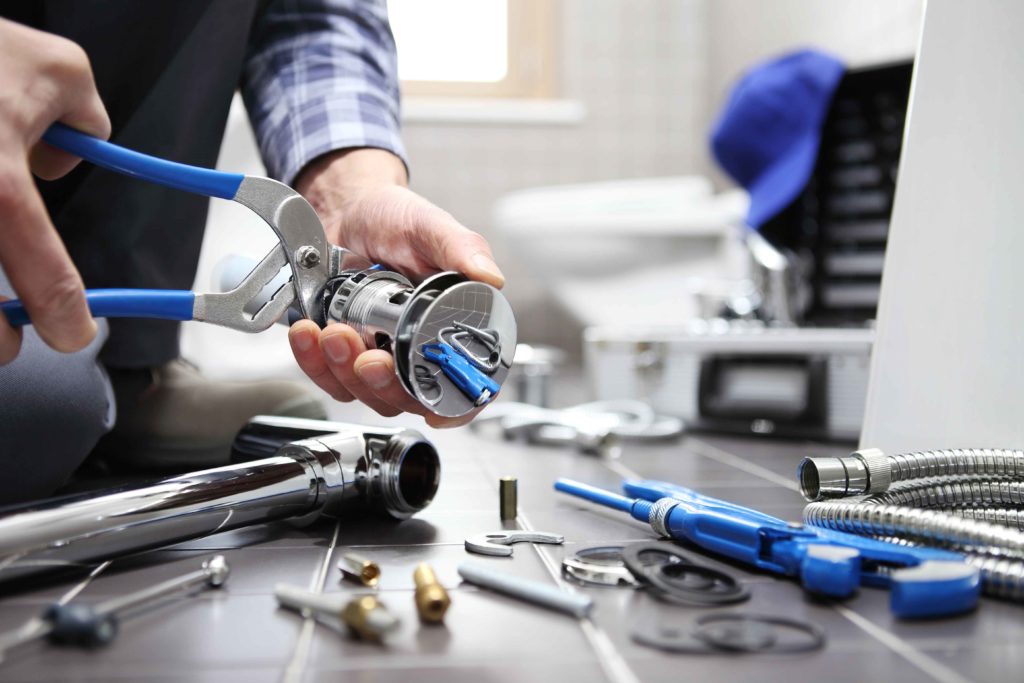Why It's Essential to Correct a Leaking Faucet
Why It's Essential to Correct a Leaking Faucet
Blog Article
Have you been trying to find critical information involving Water Dripping from Faucet: Why and How to Fix?

Trickling taps might appear like a small aggravation, yet their impact goes beyond just the inconvenience of the sound. From wasting water to incurring unnecessary financial costs and health risks, neglecting a leaking faucet can lead to various consequences. In this write-up, we'll look into why it's vital to resolve this common household concern without delay and successfully.
Wastage of Water
Ecological Impact
Trickling faucets add dramatically to water waste. According to the Environmental Protection Agency (EPA), a solitary faucet trickling at one drip per second can lose more than 3,000 gallons of water annually. This not only strains water sources however likewise influences environments and wild animals dependent on them.
Step-by-Step Guide to Dealing With a Dripping Tap
Devices Called for
Prior to attempting to fix a dripping tap, gather the essential tools, including an adjustable wrench, screwdrivers, substitute components (such as washers or cartridges), and plumber's tape.
Common Tap Issues and Their Solutions
Determine the kind of tap and the particular issue triggering the drip. Common troubles include worn-out washing machines, rusty shutoff seats, or defective O-rings. Refer to producer guidelines or on-line tutorials for step-by-step assistance on fixings.
Financial Expenses
Increased Water Expenses
Beyond the ecological impact, dripping taps can blow up water costs substantially. The collected wastefulness with time translates into higher energy expenditures, which can have been stayed clear of with prompt repairs.
Potential Building Damages
In addition, long term trickling can bring about harm to components and surfaces surrounding the tap. Water accumulation can cause discoloration, rust, and even structural concerns if left ignored, resulting in additional repair prices.
Wellness Problems
Mold and Mold Growth
The continuous presence of wetness from a dripping faucet produces an ideal environment for mold and mold development. These fungis not only jeopardize indoor air high quality however also position health threats, especially for people with respiratory problems or allergic reactions.
Waterborne Diseases
Stagnant water in leaking faucets can end up being a breeding place for microorganisms and various other microorganisms, raising the threat of waterborne illness. Impurities such as Legionella germs flourish in stagnant water, potentially resulting in significant illnesses when ingested or breathed in.
Do it yourself vs. Expert Repair work
Benefits and drawbacks of DIY Repair Service
While some might try to fix a dripping tap themselves, DIY repairs include their own set of obstacles. Without appropriate expertise and tools, do it yourself efforts can intensify the problem or result in insufficient repairs, prolonging the issue.
Advantages of Working With a Professional Plumber
Working with an expert plumber guarantees that the underlying source of the dripping faucet is attended to effectively. Plumbing technicians have the knowledge and devices to detect and fix tap concerns efficiently, saving time and minimizing the risk of further damages.
Ecological Duty
Specific Payment to Preservation
Taking obligation for taking care of leaking faucets aligns with broader efforts towards water preservation and environmental sustainability. Every individual's actions collectively make a significant influence on protecting valuable resources.
Lasting Living Practices
By prioritizing prompt repair services and embracing water-saving habits, people contribute to lasting living methods that profit both present and future generations.
Preventive Measures
Normal Maintenance Tips
To prevent leaking faucets, do routine upkeep such as cleaning aerators, checking for leakages, and replacing damaged parts immediately. Additionally, think about mounting water-saving devices or upgrading to extra efficient fixtures.
Value of Prompt Fixes
Attending to dripping faucets as quickly as they're observed protects against more water wastage and possible damages, ultimately saving both water and money in the long run.
Effect On Building Worth
Assumption of Well-Maintained Property
Maintaining a home in good condition, including dealing with maintenance concerns like trickling faucets, enhances its perceived worth and value among possible purchasers or renters.
Influence on Resale Worth
Qualities with well-kept plumbing components, consisting of faucets, command greater resale values in the property market. Dealing with dripping taps can contribute to a favorable impression throughout home inspections and settlements.
Verdict
Dealing with a trickling faucet exceeds plain convenience; it's a necessary action toward saving water, reducing financial expenses, and guarding health and home. Whether with do it yourself fixings or professional assistance, acting to repair leaking faucets is a little yet impactful method to promote accountable stewardship of resources and add to a much healthier, a lot more sustainable future.
How to Fix a Leaky Faucet: Step-by-Step Repair Guide
A leaky faucet may seem like a simple annoyance, but if it's not fixed promptly, that leak could cost hundreds to potentially thousands. From water damage to mold, mildew, and high water bills, even a tiny leak can be catastrophic if left unattended. Damage like this can even affect the overall value of your home, so it's important to take the right approach for leaky faucet repair. You may need the help of a plumber in some cases, but we've got a few tips you can try on how to fix a leaky faucet before calling the pros.
Four Faucet Types
When you're learning how to fix a leaky faucet, the first step is knowing what kind of faucet you're working with! There are four common types.
Cartridge Faucets
Cartridge faucets come in one- or two-handled varieties. In one-handled cartridge faucets, hot and cold water combines in a single cartridge. In the two-handled versions, hot and cold water are controlled separately and mixed in the faucet.
Ball Faucets
Ball faucets have a single lever you push up and down to adjust the pressure and rotate to change the temperature. A slotted metal ball controls the amount of water allowed into the spout.
Compression Washer Faucets
They're the oldest type of faucet, but they're still used in many homes — especially older ones. Compression faucets have two separate handles that, when turned, raise or lower the washer that seals a water valve. This valve stops water from flowing through the faucet when it is turned off.
Disc Faucets
Disc faucets rarely need to be repaired due to their maintenance-free design. The water flow is controlled by two discs — the upper one raises and lowers against a fixed lower disc, creating a watertight seal. If your disc faucet starts leaking, you may need to replace the seals or clean residue buildup from the inlets.
Fixing a Leaky Faucet
Step 1: Turn Off the Water
Whether you're learning how to fix a leaky bathtub faucet or how to fix a leaky kitchen faucet, always turn off the water supply to your working area when you're fixing a leak. The last thing you want is a flood added to your list of things to fix.
Look for the shutoff valves below your sink or around the tub and turn them clockwise to stop the water flow. If your faucet doesn't have shutoff valves, you may need to turn off the water for the whole house. Check to make sure it's off by turning the faucet on. If nothing comes out, you're ready to start the repair.
Step 2: Take Apart the Faucet
How you disassemble your faucet depends on the type of fixture you have. You can use a flathead screwdriver to remove the caps on top of the handle or handles for cartridge and compression faucets. Inside, you should see handle screws. Unscrew these with a screwdriver to remove the handle.
Disc- and ball-style faucets will typically have an inlet screw near the handle, and removing that will reveal the interior of the faucet.
Detach the Valve Stem
For cartridge- and compression-style faucets, you'll see the inner valve stem or cartridge once you remove the faucet handles. If you have a compression faucet, unscrew the brass valve stem. If you have a cartridge faucet, pull out the cartridge. If your cartridge has been in place for a while, it may require some tools or extra force to remove it due to mineral deposits.
Examine and Replace Parts
Once you've removed the parts, check them out to confirm what needs to be replaced. You may see corroded rubber washers, O-rings, stems, or cartridges. On a ball-style faucet, check the seats and springs for damage.
If you need to repair a leaky disc faucet, check the inlet and seals on the lower disc.
Once you determine what parts must be replaced, visit your local hardware store. Bring the damaged parts with you to ensure you can purchase the correct components to replace them.
Clean Valves and Faucet Cavity
If you've removed a stem or cartridge, you may notice mineral buildup in the faucet's threads. Use white vinegar to clean the valve seat by soaking it for a few minutes, then scrub it away with a soft toothbrush and rinse with warm water. You can also clean the interior of the faucet in the same way.
Reassemble the Faucet
Once your faucet is cleaned and the required parts have been replaced, it's time to reassemble it. Put the pieces back together and slowly turn the water supply back on. Doing this slowly is crucial because too much initial water pressure can damage the new hardware you've just installed.
https://homewarranty.firstam.com/blog/how-to-fix-leaky-faucet

Do you like reading up on Leaky Faucets: Why They Happen & What to Do About Them? Create a remark below. We will be delighted to hear your opinion about this blog posting. We hope that you come back again in the near future. Sharing is caring. One never knows, you will be helping someone out. Thanks for being here. Revisit us soon.
Report this page